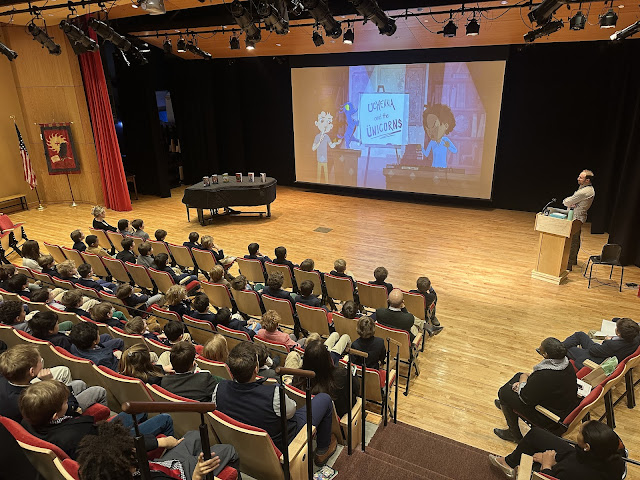It has been reported that even elite college students are unable to handle assignments that involve reading large amounts of text. The average adult human attention span is said to have decreased. We are constantly multi-tasking, scrolling through social media feeds, contending with distractions that beckon us. Much praise is often given to multitaskers, but science tells us that the human brain cannot focus effectively on two things at once.
While social media's algorithms may hook us into spending extended periods of time on a particular feed, we are losing our ability to devote time to deep thought, critical analysis, problem-solving, and the encoding and decoding associated with person-to-person communication—all essential to securing and maintaining high level employment and leading a meaningful, purposeful life.
So what to do? Great schools often need to be countercultural. At Saint David's, we stand committed to the written word and the book. Reading asks us to engage in deep thinking, imagining, synthesizing, analyzing, and evaluating. We have several libraries, each filled with books of every genre, where at any point in the day you can find a boy immersed in research or engaged with literature.
In addition, this week, published authors Adam Gidwitz and Jason Miletsky visited with boys in all grades to share the art, craft, inspiration, and process behind their writing.
We are committed to intellectual depth across the curriculum. In science, math, literature, and art, we ask our boys to be inquisitive, curious, to take risks and not fear failure, whether for an inquiry-based math investigation, a STEAM science project, or a history unit. For example, our seventh graders are currently studying ancient Greece and Rome in history. Last week, aligned with their studies, they performed excerpts from the Oresteia, Aeschylus's trilogy, which consists of Agamemnon, The Libation Bearers, and The Eumenides. This Greek tragedy, which deals with the murder of Agamemnon by his wife Clytemnestra, and its aftermath, pursues universal themes like the endless cycle of revenge, quest for justice, consequences of betrayal, and the gift of mercy.
The boys interpreted the various roles, commanded the dialogue, and delivered their lines with clear comprehension of these themes and issues in a play that was written in the 5th century BCE. They were able to attain these levels of understanding because they are learning the value of going deeper, of "staying with it" until mastery is achieved.





